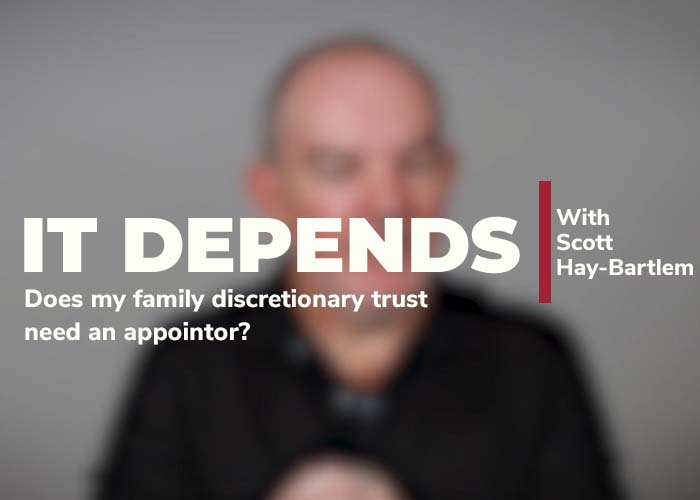Video transcript
Hello, hello, everyone. I’m Justine Woods. I’m the family law partner at Cooper Grace Ward. And today, I’m going to talk about the vital importance of timing in a binding financial agreement.
Case of Quincey
The case I’m going to discuss is of one of Quincey, which was decided this year. And I think it confirms my powers of divination because about a month ago, I was interviewed by one of our commercial partners in a coffee discussion podcast, and he asked me, ‘what is keeping your clients up at night?’ And I talked about some parenting issues, but I also mentioned that I had seen this massive trend of people ringing up and asking, could they have a binding financial agreement now? And it was generally after a number of years, in some cases at least a decade, often with children, can I have a binding financial agreement now because I brought in all of the assets or I’ve done most of the work, or the other person won’t work, and I’m very annoyed with them. And I’ve had to say, yes, you can. But if you’re raising a binding financial agreement well into a relationship, particularly one that’s produced children and there’s already unhappiness, either on the surface or below, you have the absolute potential to detonate the relationship with separation to follow, or that the person on the other side will simply refuse to sign the agreement and the relationship deteriorates further. Or like in this case, you can get the other person to sign it, but then it still detonates the relationship and you end up in litigation.
Details of their binding financial agreement
So, in the case of Quincey, they started living together in 2009, married the following year. And then in 2018, so about nine years into the relationship, when things were already strained and unhappy, and there had been some police intervention when they were arguing about finances. The husband put to the wife a binding financial agreement, where he kept all of his assets, and he was to pay her $80,000 in monthly instalments of $5,000. She signs the agreement, a bit more police intervention. They finally separate and the husband makes the instalment payments. After more than a year of those payments, the wife then applied to set the agreement aside, alleging that it ought not to be found to be binding by the court and should be set aside. Meaning that she would then, it was as though the agreement had never been in place, and she was entitled to a property settlement. Now the husband, in reply, argued that she should be estopped from challenging the binding nature of the agreement because she’d taken the payments of $80,000 effectively. Now, estoppel is an equitable term, and it is effectively saying you’re not permitted to do something because of prior action or agreement. So, in this case, the binding financial agreement said she gets $80,000. You’ve taken those payments. You ought not to be able to challenge it at all. Now, on appeal, the appeal court confirmed that the agreement was not binding. So, there were a number of flaws with it. And I do find that once you have one thing going wrong, there’s usually, generally speaking, a cluster of disaster.
Wife didn’t receive appropriate individual legal advice
So, in this case, the wife didn’t receive appropriate independent legal advice prior to entering into the agreement. I won’t really focus on that because we’ve got all the material about that. The more important issue and what you as a person going through a family law matter or contemplating a financial agreement can control is making full and frank disclosure and attempting to have a coherent story. So, here the first draft of the agreement set out the husband’s assets. It took an appropriate amount of time to be negotiated, but by the time it came to be signed, $500,000 had come off the balance sheet. The husband had transferred money back to his parents in The States, his savings had, his other savings had been reduced and then and once you start to see references to postdated documents in a judgment, you know you’re going to suffer the consequences because then he and his parents cooked up a loan agreement post separation to say, oh that money I transferred you, that was really in repayment of a loan. So, the trial judge and the appeal judge were not having any of that, and said that there had been a failure to make disclosure of a material matter so that the agreement could not stand. And what every law student remembers from being at university, he did not come to equity with clean hands. So, you’ve got your legal remedies, contract, fairly cut and dry with a suite of equitable remedies which have something quite special about them. And if you ask the court to, for example, estop someone, all of the old cases, 300 year old cases talk about coming to equity with clean hands. And in this case, the appellant was found not to have clean hands. Now, those whole disclosure issues that could have been addressed potentially, there was probably too much bad behaviour there for the agreement to stand. Particularly as the wife didn’t receive independent legal advice in the way that she ought to have done and is required to have done under the Family Law Act. But it’s also illustrative of timing. It is absolutely no good. I think it would have been better not to have done it, not to have had any agreement at all. He said, oh no, my parents need that money back, keep going for a while longer. Sometimes time cures what might seem to be aberrant behaviour, but if you try and insist and push through a binding financial agreement long into a committed relationship, unless there’s a real understanding between the spouses, you are just inviting misery.
Examples of matters
I have had matters where, for example, after long relationships, parties would like to stay together. I don’t know that this is divinely happy marriage, but together. But one party wanted to have a complete lifestyle change and pursue what might have seemed to be much riskier financial activities than what the other spouse was happy to embark upon. So, they split up their assets so that the nice, safe, unencumbered assets, no tax, no speculation, no debt, we’re left with one spouse, and the other spouse could go ahead and pursue the endeavours that they wanted to. So, I’m not saying it’s impossible, but certainly not in these types of situations. And they’re much more common. So, the inquiries are usually like this. Great disparity in income, disparity in asset holdings, disparity in financial control. Now, I do not say financial control lightly. That being questioned about what you spend, if you don’t have an income or even if you do have an income. In my view, without more is not financial control. But sometimes in these types of cases, it can be part of the constellation of difficulty.
So, if you’d like to talk about, is this the right time or have I lost my chance to have a sensible, binding financial agreement? You’re most welcome to contact us here at Cooper Grace Ward.





